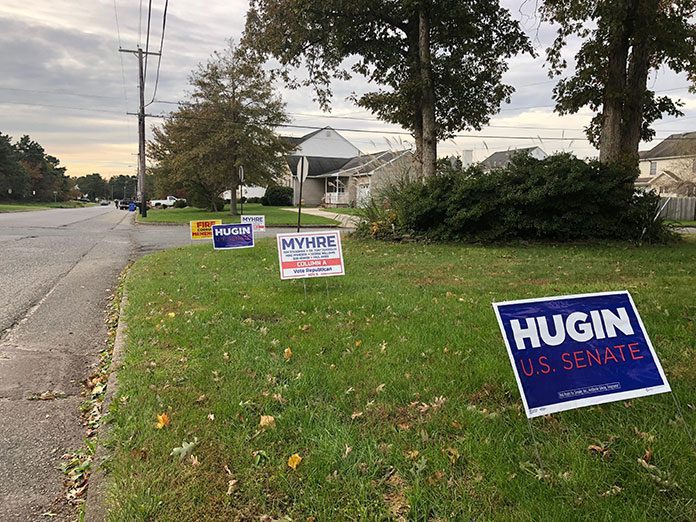
It’s the home stretch of the political campaigning season, with midterm elections in just a few days and candidates trying to inspire their faithful to vote and sway agnostics to believe in them…and vote for them.
Anyone listening to the chatter has heard “blue wave” and “red wave.” Whichever wave sweeps in, it’s no doubt been a negative wave of political ads, with little touting but much tearing. And the closer the race, the uglier the ads: polls show Republican incumbent Tom MacArthur only a point ahead of Democrat challenger Andy Kim. Their nasty back and forth earned a write-up in NJSpotlight.com: MacArthur is a Trump-puppet who is pro-pollution; Kim has a padded resume and is buddies with Bob Menendez, who himself is plagued with corruption allegations and fighting to keep his own seat against GOP challenger Bob Hugin, although polls put him comfortably ahead. Hugin received the endorsement of Ocean County Democrat Theodore Price, who is running for a Board of Chosen Freeholder seat. His endorsement cost him the support of the Toms River Democratic Club, which formally withdrew its support of him and expelled him from the organization.
The topic of negative political ads has been studied in the academic realm. All the studies have their limitations and flaws, but many of them seemed to arrive at the same conclusion. Do negative ads work? Eh? Maybe?
Brigid Harrison, a professor of Political Science and Law at Montclair State University, told Micromedia Publications that data indicates negative political ads have increased over the decades.
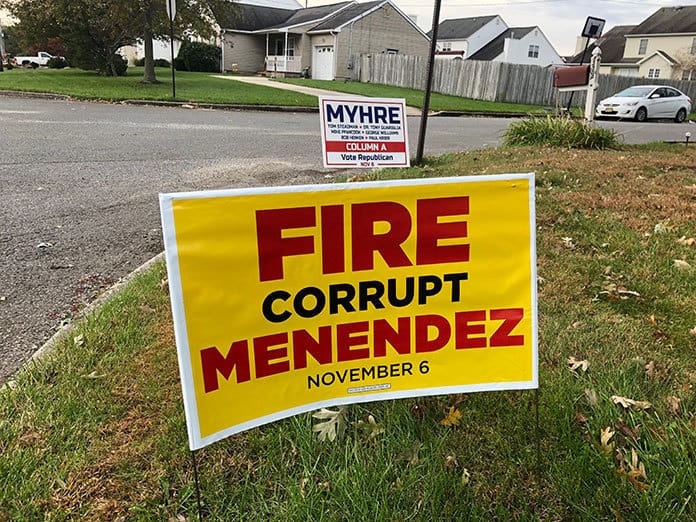
A November 2016 study by Conor M. Dowling and Yanna Krupnikov, “The Effects of Negative Advertising,” found that since 1960, campaigns have only gotten more negative. In 1960, only 10 percent of aired advertisements were “negative.” By the 2012 campaign, less than 15 percent were “positive.” Ads focus more on criticizing opponents than lauding one’s own accomplishments.
Their study cites J.G. Geer, who defines a negative political ad as “any criticism leveled by one candidate against another during a campaign.” A positive ad is one that “states why a candidate is worthy of your vote.” The definitions lack nuance: “an ad either has a criticism and is negative, or has no criticisms and is positive,” the study said. However, other scholars have pointed out that ads can be negative toward an opponent while still touting the positives of the other candidate.
The bulk of campaigning ad spending is spent in defensive postures. Harrison pointed to the Hugin/Menendez race. Hugin, she said, spent $24 million of his own money on advertising, much of it in the summer. His campaign started with him introducing himself to voters, and then began a series of negative attacks on Menendez. The sitting senator, who doesn’t have $25 million of his own money to spend, had to make a decision on how to spend his advertising dollars: does he spend it on touting his record, or defending himself against Hugin’s negative charges?
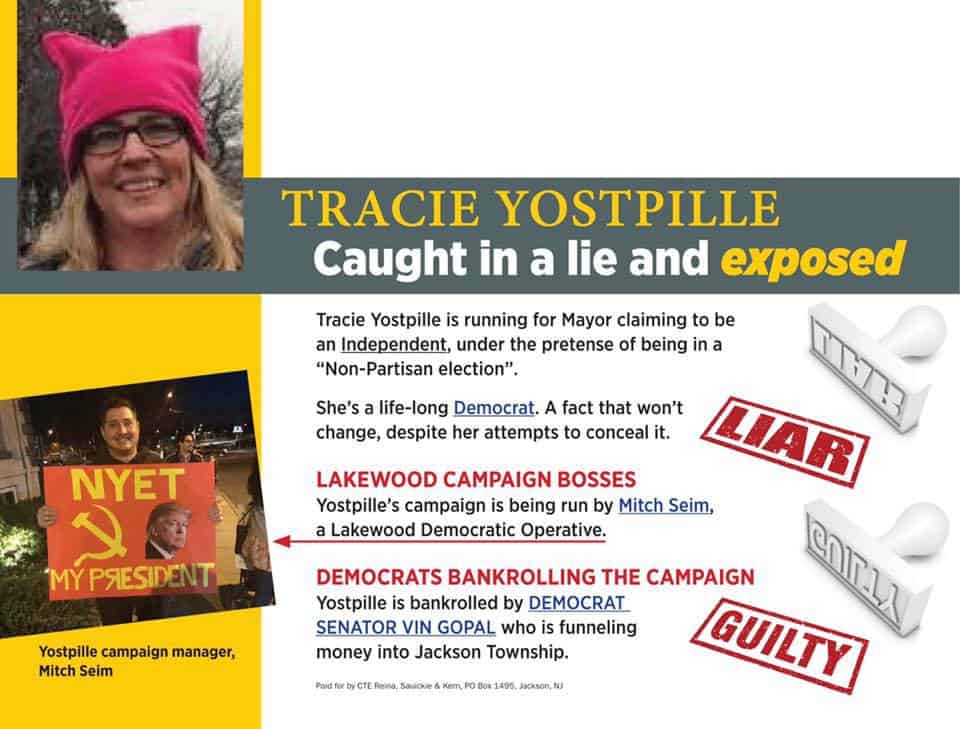
“Most of the research shows that negative advertising is both effective at swaying voters’ opinions. It also has the tendency to tamp down support for a candidate,” Harrison said. “So, for example, if a candidate takes out negative advertising against his or her opponent, even if the voter may not believe all the charges that have been levied, they may be less enthusiastic and therefore less likely to turn out and vote, which sometimes is the goal of negative advertising.”
Yet a 2014 study showed that of those surveyed, 76 percent of Americans found negative advertising distasteful. So why the increase?
“It’s not to say we don’t see any positive ads – we do – but also remember that a lot of the ads we are seeing now are purchased not by campaigns, but by independent expenditure entities and so they are much more likely to engage in negative advertising, targeting one candidate or another, rather than touting the resume or the record of a candidate,” Harrison said.
“I don’t know that we have to necessarily like something for it to be effective,” Harrison continued. “When you’re watching negative advertising, it is likely to make you feel distrustful of politics, not supportive of a candidate that perhaps you had supported in the first place. Just because you feel those things and don’t like them doesn’t necessarily mean they’re not being effective at shaping your views. So, the disconnect is in thinking somebody has to like something in order to have it accurately do what it’s intended to do.”
Donald Green, a professor of political science at Columbia University, wrote a response to a reader question for Scientific American. He cited the results of a 2007 published study. “The authors reported that negative ads tended to be more memorable than positive ones but that they did not affect voter choice. People were no less likely to turn out to the polls or to decide against voting for a candidate who was attacked in an ad.”
Green conducted his own study with colleagues in 2006, using the campaign of Texas Governor Rick Perry as their specimen, studying 18 media markets randomly for pro-Perry ads. Any effects, they found, were short-lived.
“Although evidence on the effectiveness of negative political ads is inconclusive, campaign consultants clearly believe in their power, which explains why negative ads are so often used,” Green concluded.

Educator Sean Quirk, formerly of Middletown, is a registered Democrat who plans to vote in the upcoming midterm elections. He’s a lifelong New Jersey resident who now lives and works in Bergen County.
“I have heard a lot of campaign ads and they are almost always negative. The ones that I recall most are for the governor’s race for New York: Andrew Cuomo and Mark Molinaro. Also the earlier Democratic primary with him against Zephyr Teachout and Cynthia Nixon. I remember distinctly some ads being very negative, in the sense that Nixon was calling out Cuomo on not serving the people of New York City in regards to transportation, i.e. the New York City, MTA issue,” Quirk told Micromedia Publications. “In my home state of New Jersey, Bob Hugin’s ads against Bob Menendez were also fairly negative, attacking Menendez on his record and his ethics violations/court trials for corruption.
“I will be honest, I myself think that Bob Menendez is not the most ethical person, and his record of ethic violations doesn’t make it easy to vote for him. So, yes – Bob Hugin was working on what was already a raw nerve. Menendez is pro-teaching/pro-union so, I will most likely vote for him with a conflicted conscience,” Quirk said.
James Cavnar, of Beachwood, is the vice president of talent acquisition at Healthfirst in New York City. He’s a registered Republican. This campaign season, he’s seen both positive and negative ads, but definitely more negative. However, he doesn’t view ads as negative if they stick with issues, but rather, if attacks turn personal. When the mud starts slinging that low, it generally makes him think less of the one doing the slinging, not the one covered in mud.
“[The ads are] much more negative. Just compare the ads from 30 years ago to today. The accusations made, the language used, the personal nature of many of the topics covered (especially if they are unrelated to the election) are nothing like the ads of a few decades ago. No shame anymore. Having said that, they must work on a lot of people because they keep getting worse,” Cavnar said.
Benjamin Szuba, an Ocean County resident, weighed in.
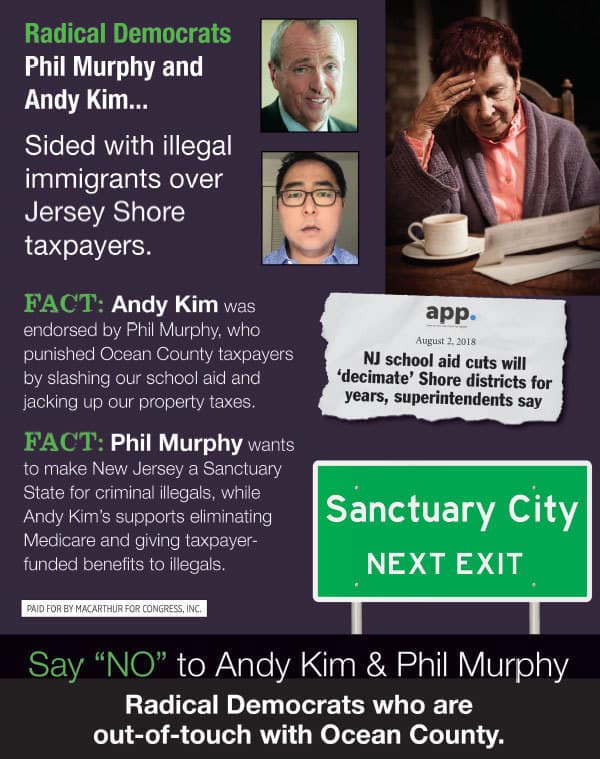
“A negative ad portrays the candidate in ‘what society deems’ a negative and/or distasteful light. They may possibly bring up something from the candidate’s past, even if it was just an accusation, but again negative. Something negative may not necessarily mean illegal, it could be something unethical,” Szuba explained to Micromedia Publications about what he believes is a negative political ad. But, he uses the negative to motivate him. “It has only had me look deeper at a candidate to find out more about them. I tend to find humor in them, actually. Especially when the negative ad they are trying to run against a candidate only brings forth their own hypocrisies even more. An example would be Bob Menendez. This guy had the nerve to say things about (Supreme Court Justice Brett) Kavanaugh during his hearings…. Usually the attacker comes out worse when their own hypocrisy comes out.”
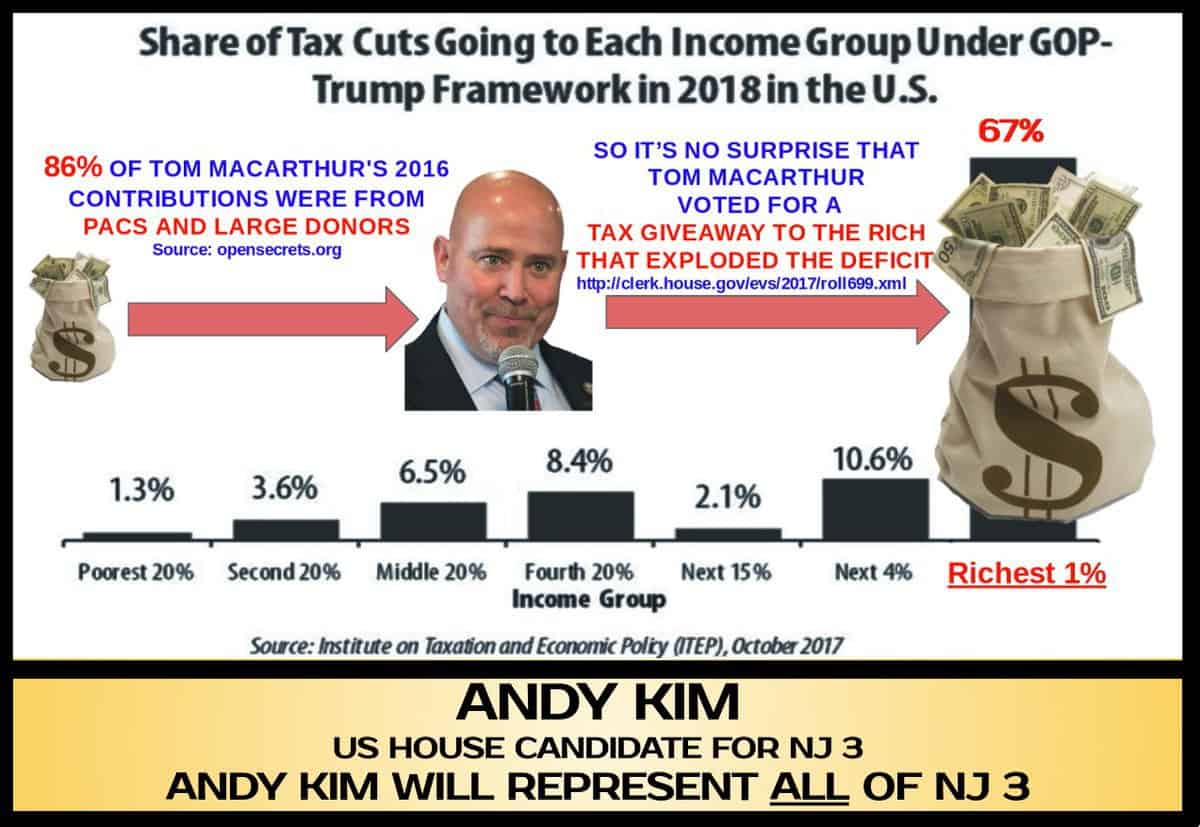
“I think politics in the age of Trump have become very polarizing. … Democrats are called ‘an angry mob’ by Republicans and Donald Trump. Republicans are seen as obstructionist and villains of the middle class. My father is a life-long Democrat who believes that Mitch McConnell is a traitor and Trump makes his blood boil. I do not subscribe to such views; but many people do,” Quirk said. “I think in today’s politics, there is no middle. You are a Democrat and against anything or anyone that claims to be Republican. You are a Republican trying to save America from liberalism.
“It is all so depressing.”






